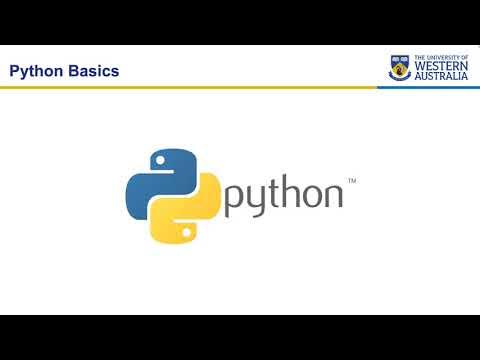Learn C Language In 10 Minutes!! C Language Tutorial
Summary
TLDRThis video provides an in-depth introduction to the C programming language, covering its history, features, syntax, and key concepts. Developed by Dennis Ritchie in the 1970s, C is a middle-level language used for system-level programming. The tutorial highlights important topics such as data types, variables, functions, conditionals, loops, arrays, pointers, structures, and unions. It also covers how to declare variables, use operators, and manage memory efficiently. The video is designed for beginners, providing the essential knowledge needed to start programming in C and compiling code using popular compilers like GCC.
Takeaways
- 😀 C language was invented by Dennis Ritchie at AT&T Bell Laboratories in the 1970s, evolving from the earlier B language.
- 😀 C is a middle-level programming language used for system-level programming (e.g., operating systems) and applications.
- 😀 C is a structured programming language, meaning programs are written using functions and modules.
- 😀 C++ is an extension of C that supports object-oriented programming (OOP).
- 😀 To start programming in C, you need a compiler like GCC or Clang, and C files end with a '.c' extension.
- 😀 Header files in C have a '.h' extension and can be imported with '#include' to access functions like printf and scanf.
- 😀 C language has 32 keywords and five primary data types: char, int, float, double, and void.
- 😀 To output data, C uses the printf function, with format specifiers like '%d' for integers, and to take input, the scanf function is used.
- 😀 C supports conditional statements like 'if' and 'else', and you can use 'switch' statements for multiple choices.
- 😀 C offers three types of loops: 'while', 'do-while', and 'for', allowing different control over iteration and conditions.
- 😀 Functions in C allow reusable blocks of code that perform specific tasks. Pointers, arrays, strings, and structures are essential features for managing data efficiently.
Q & A
What is the origin of the C programming language?
-The C programming language was invented by Dennis Ritchie at AT&T Bell Laboratories in the early 1970s.
Why is C considered a middle-level programming language?
-C is considered a middle-level language because it combines the features of both high-level programming languages (for application development) and low-level programming languages (for system-level programming, such as operating systems).
What is the difference between C and C++?
-C is a procedural programming language, while C++ is an extension of C that supports object-oriented programming, allowing for more complex data modeling and structure.
What are the primary data types in C?
-The five primary data types in C are `char` (for characters), `int` (for integers), `float` (for decimal numbers up to 6 digits), `double` (for decimals up to 15 digits), and `void` (used to specify functions with no return value).
What is the purpose of header files in C?
-Header files in C are used to import external code that can be reused in a program. They typically contain function prototypes and definitions, and they have a `.h` extension.
What are format specifiers in C, and can you name a few?
-Format specifiers are used in C for input and output operations to specify the type of data being handled. Examples include `%d` for integers, `%f` for floating-point numbers, and `%s` for strings.
How does an `if-else` statement work in C?
-An `if-else` statement in C executes certain code if a specified condition is true. If the condition is false, the `else` block is executed. Multiple conditions can be chained with `else if`.
What is the difference between a `while` loop and a `do-while` loop in C?
-In a `while` loop, the condition is checked before the loop executes, so the loop may not run if the condition is false initially. In a `do-while` loop, the loop executes at least once before checking the condition.
What is the purpose of a function in C programming?
-A function in C is a block of code designed to perform a specific task. Functions can be called multiple times with different arguments, helping organize code into reusable sections.
How do pointers work in C, and what is the role of the `&` and `*` operators?
-Pointers in C store the memory address of a variable. The `&` operator is used to get the address of a variable, while the `*` operator is used to dereference a pointer, accessing the value stored at the memory address it points to.
What is the difference between a `struct` and a `union` in C?
-A `struct` is a collection of different data types, with each member having its own memory location. A `union`, on the other hand, allows multiple data types to share the same memory location, but only one member can store a value at any given time.
Outlines

Dieser Bereich ist nur für Premium-Benutzer verfügbar. Bitte führen Sie ein Upgrade durch, um auf diesen Abschnitt zuzugreifen.
Upgrade durchführenMindmap

Dieser Bereich ist nur für Premium-Benutzer verfügbar. Bitte führen Sie ein Upgrade durch, um auf diesen Abschnitt zuzugreifen.
Upgrade durchführenKeywords

Dieser Bereich ist nur für Premium-Benutzer verfügbar. Bitte führen Sie ein Upgrade durch, um auf diesen Abschnitt zuzugreifen.
Upgrade durchführenHighlights

Dieser Bereich ist nur für Premium-Benutzer verfügbar. Bitte führen Sie ein Upgrade durch, um auf diesen Abschnitt zuzugreifen.
Upgrade durchführenTranscripts

Dieser Bereich ist nur für Premium-Benutzer verfügbar. Bitte führen Sie ein Upgrade durch, um auf diesen Abschnitt zuzugreifen.
Upgrade durchführenWeitere ähnliche Videos ansehen
5.0 / 5 (0 votes)






